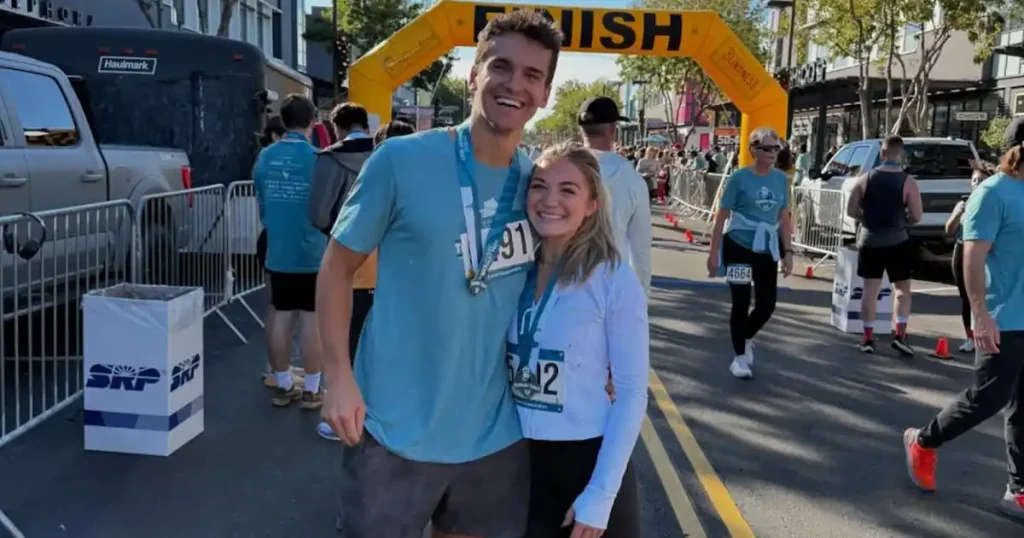TikTok Star Abby Howard’s Heartbreaking Pregnancy Loss
In a deeply emotional joint Instagram post shared on September 27, TikTok personality Abby Howard and her husband Matt revealed the devastating news of their pregnancy loss. The couple, who already parent two young sons—three-year-old Griffin and two-year-old August—had joyfully announced their third pregnancy just a month earlier in August. Their announcement took followers through the heartbreaking moment when, during what should have been a routine prenatal appointment, their doctor was unable to detect their baby’s heartbeat. The subsequent ultrasound confirmed their worst fears with the technician’s gentle but devastating words: “I am so sorry I do not have good news.” In that moment, the Howards received an unexpected gender reveal—learning they had been expecting a daughter—alongside the crushing news that their baby had developed a genetic condition that had taken her life at approximately 17 weeks gestation. The couple expressed how this news felt “unimaginable” to them, marking the beginning of a profound grief journey.
The Howards’ transparent sharing of their loss resonated deeply with their social media community, as they balanced expressions of their overwhelming grief with glimpses of the gratitude they still feel. “The grief is absolutely devastating, but we feel so much gratitude for the time that we did get to have with her,” they wrote in their heartfelt statement. Despite their immense sorrow, they emphasized that hope continues to manifest for them in unexpected ways during this difficult time. The couple announced their decision to step away from social media temporarily to process their grief privately and “think of ways to honor her life offline.” They concluded their message with gratitude to their followers who had celebrated their anticipated addition during the previous 17 weeks and welcomed prayers and supportive thoughts during this painful chapter. Their vulnerability in sharing such a personal loss has created space for conversations about pregnancy loss, a tragically common yet often silenced experience many families endure.
The announcement prompted an outpouring of support from fellow content creators and public figures who rallied around the grieving couple. “Little People, Big World” alumna Tori Roloff offered heartfelt condolences, sharing the perspective that had comforted her through her own loss experience—the thought that “the first face my baby saw was Jesus.” This sentiment, offered as potential solace to the Howards, reflects the spiritual framework many find helpful when navigating pregnancy loss. Other notable figures including Jill Duggar, Lindsay Arnold, Sadie Robertson, Devin Cordle, and Sam Patterson added their sympathies to the growing thread of support. Perhaps most poignant was the message from fellow creator Emilie Kiser, who wrote, “I’m so incredibly sorry. Sending you love and comfort. Here for you.” Kiser’s support carries particular weight given her own recent, devastating loss—the accidental drowning of her three-year-old son Trigg in May of this year—a tragedy that similarly led her to step away from social media platforms to grieve privately.
Emilie Kiser’s parallel experience of loss and subsequent return to social media offers a glimpse into what the Howards’ journey might entail in the coming months. After taking several months away from her platforms following her son’s drowning, Kiser recently reappeared in a vulnerable TikTok video on September 20. Her hesitant return revealed the complex emotions that accompany stepping back into public life after profound loss: “Hey you guys, don’t even know what to say. It’s been a minute since I’ve obviously come on here. Not gonna lie, I’m really nervous right now. I don’t really know if there’s any right way to start this video, but I’m going to do my best.” Her words highlight the disorientation and uncertainty that follows life-altering grief, especially when one’s professional identity is intertwined with sharing personal life moments online. Despite the difficulty, Kiser expressed missing the connection with her online community and hoped that by sharing selected aspects of her ongoing grief journey, she might help others facing similar situations.
The parallel stories of these two social media families—the Howards and the Kisers—illuminate the universal nature of grief while highlighting the unique challenges faced by those who process personal tragedies while maintaining public personas. Both families have chosen to be transparent about their losses while still protecting their privacy during their most vulnerable moments. The Howards’ decision to step away from social media mirrors Kiser’s earlier choice, suggesting a recognition of the need for unmediated space to process grief before determining how much of that journey to share publicly. These stories also underscore how online communities can provide genuine support during life’s most difficult chapters, with followers and fellow content creators offering condolences that clearly transcend the often superficial nature of social media engagement. The responses to both families’ losses reflect a profound human capacity for empathy, even across digital divides.
While the Howards begin their healing journey offline, their story has already created important space for conversations about pregnancy and infant loss—experiences that affect countless families yet often remain shrouded in silence. By sharing their grief publicly, even as they step away to process it privately, they’ve participated in the slow dismantling of taboos surrounding these devastating losses. Similarly, Emilie Kiser’s gradual return to social media after her son’s tragic drowning accident (which the original text notes was followed by water safety awareness information) demonstrates how personal tragedy can eventually transform into advocacy and support for others. Both families’ experiences, though uniquely painful, contribute to broader awareness of child loss, pregnancy complications, and water safety—potentially helping other families navigate similar circumstances or even prevent tragedies through increased awareness. Their willingness to share these most vulnerable moments reflects remarkable courage and an understanding that shared grief, while no less painful, creates connection and meaning in the face of otherwise senseless loss.


